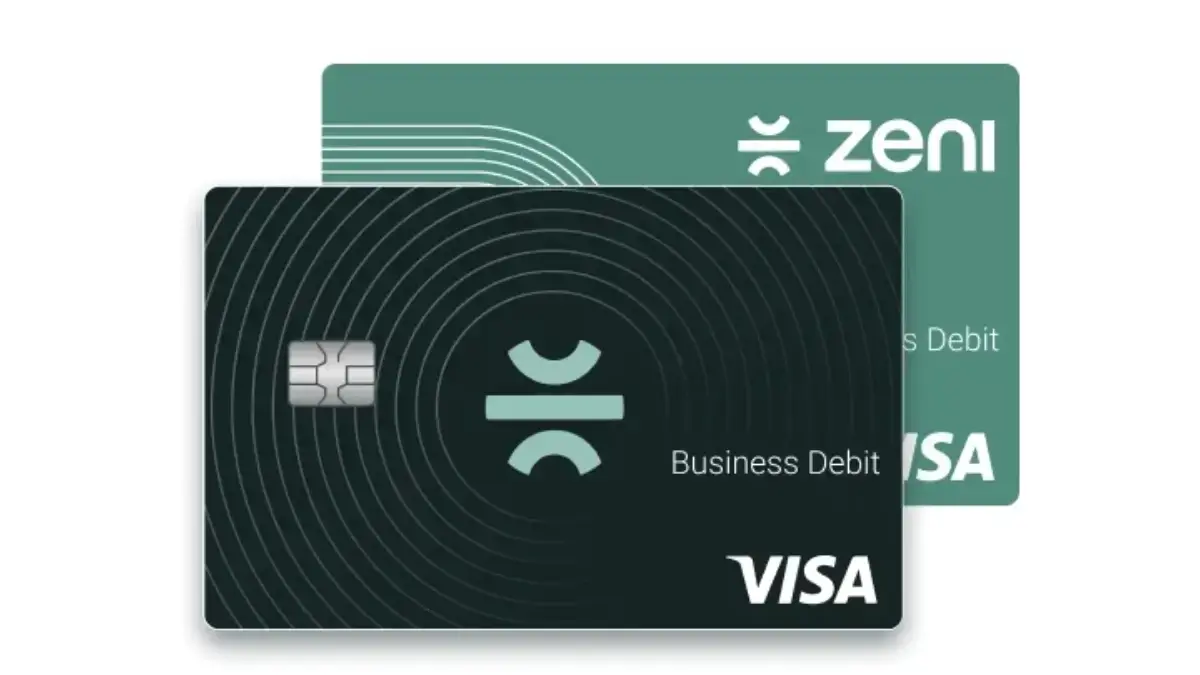
Kudos has partnered with CardRatings and Red Ventures for our coverage of credit card products. Kudos, CardRatings, and Red Ventures may receive a commission from card issuers. Kudos may receive commission from card issuers. Some of the card offers that appear on Kudos are from advertisers and may impact how and where card products appear on the site. Kudos tries to include as many card companies and offers as we are aware of, including offers from issuers that don't pay us, but we may not cover all card companies or all available card offers. You don't have to use our links, but we're grateful when you do!
6 Reasons You Should Consider Buying Life Insurance
July 1, 2025


Life insurance often isn’t a topic we love to think about – after all, who wants to plan for the worst? But taking out a life insurance policy is one of the kindest financial decisions you can make for those you care about. It provides a safety net of funds that can keep your family or dependents afloat if you’re no longer there to support them.
In essence, buying life insurance is about protecting your family’s future and ensuring they won’t face devastating financial losses in your absence. Let’s break down six compelling reasons why life insurance might be a smart move for you.
1. Financial Protection for Your Dependents
If you have a spouse, children, or other family members who rely on your income, life insurance is crucial for maintaining their financial stability. The primary purpose of life insurance is income replacement – making sure your loved ones can cover everyday living expenses and bills if your earnings suddenly disappear. Think about it: could your family pay the mortgage, utilities, childcare, and other costs without your paycheck? If not, a life insurance payout can step in to fill that gap.
Expert insight: “Adequate life insurance coverage helps ensure that a breadwinner’s children, parents or families receive monetary compensation upon their death that would last them just enough until they can earn income on their own,” says Roman Zrazhevskiy, a financial CEO, underscoring the importance of protecting those who depend on you.
In short, life insurance serves as a financial safety net. It means your family won’t have to drastically downsize their lifestyle or face hardship if the unthinkable happens. This peace of mind alone can make life insurance worth it for anyone with dependents. As one insurance professional put it, “Life insurance offers peace of mind for you and helps to ease the financial burden on your family if you die prematurely”. Knowing your loved ones are provided for is priceless.
2. Paying Off Debts and Mortgage
Life insurance isn’t just about replacing income – it can also pay off outstanding debts that might otherwise fall onto your family. Mortgages, car loans, credit card bills, student loans – all of these obligations remain due even after you’re gone. In many cases, your debts could become the responsibility of a cosigner or your estate, meaning your spouse or family might be left grappling with them. A life insurance policy can prevent your loved ones from inheriting that financial burden.
For example, the lump-sum benefit from a policy could pay off the mortgage on your family home, allowing your partner and kids to continue living there without worrying about monthly payments. It could settle car loans and credit card balances so creditors don’t come after your estate. Essentially, insurance proceeds ensure that debts are taken care of the way you intended – instead of forcing your family to drain savings or sell assets to cover those bills. By using life insurance to eliminate major debts, you give your loved ones a clean slate and financial stability during a difficult time.
The bottom line: If you have significant loans or a mortgage, life insurance keeps those debts from becoming your family’s problem. They’ll be able to keep the house, maintain good credit, and focus on healing – not on calls from debt collectors.
Shopping for life insurance? Kudos quickly compares top carriers and finds hidden perks – it’s free and easy to use.
3. Covering Funeral and Final Expenses
Funeral costs and medical bills at the end of life can be surprisingly high. The median cost of a funeral with burial in the U.S. is around $8,300, according to the National Funeral Directors Association. Without a plan, your loved ones might have to scramble to come up with thousands of dollars for caskets, services, or other end-of-life expenses. This can add financial stress to an already emotional time.
A life insurance policy can relieve that burden by covering these final expenses. Even a small life insurance policy (sometimes called burial insurance or final expense insurance) is designed to pay out enough cash to handle funeral arrangements, cremation or burial, and any remaining medical or legal bills. That means your family won’t have to dip into their savings, take out loans, or sell belongings to give you a proper goodbye. Instead, they can focus on honoring your memory without worrying about the price tag.
In short, life insurance ensures your last expenses are paid for. It’s a way of showing care for your family, sparing them from financial strain when they’re grieving. Even if you have no other debts or dependents, coverage for final costs is a common reason people buy life insurance.
4. Leaving an Inheritance or Legacy
Want to leave something behind for your children, grandchildren, or a cause you care about? Life insurance is a straightforward way to create an inheritance even if you haven’t amassed great wealth. When you purchase a policy, you name beneficiaries – and upon your death, the insurance benefit is paid directly to them, usually tax-free. They can use this money for any purpose: to pay for college, put a down payment on a house, start a business, or simply have financial cushion for the future.
For families with few assets, a life insurance payout can be transformational. It can help the next generation break the cycle of living paycheck-to-paycheck by providing capital for education or investments. Even if your estate is modest, a life insurance policy ensures you leave a meaningful gift. As NerdWallet notes, life insurance is an effective way to pass on wealth, and beneficiaries typically don’t have to pay income tax on the proceeds – maximizing the impact of every dollar you leave them.
Don’t have close family? You can also leave a legacy to a charitable cause. Many people name a favorite charity, religious organization, or alma mater as a beneficiary of their life insurance. This way, you can contribute to a cause that’s important to you, making a final philanthropic impact. (Some policies even allow adding a charitable giving rider to automatically donate a portion of the benefit to charity.) In either case – family or charity – life insurance lets you shape how you’re remembered and provide support to others, even when you’re no longer here.
5. Locking in Low Premiums While You’re Young and Healthy
One of the most practical reasons to consider life insurance sooner rather than later is cost: the younger and healthier you are, the cheaper it is to get insured. Life insurance premiums are based on factors like your age and health. When you’re in your 20s or 30s, you’re likely in peak health with few medical issues – meaning insurers see you as a low risk. As a result, it’s easier to qualify for coverage and snag the best rates available. By contrast, waiting until you’re older (or have developed health conditions) can send premiums skyrocketing, or even make you uninsurable for certain policies.
Locking in a policy now can save you a lot of money over the long run. For instance, a healthy 30-year-old could buy a $500,000 30-year term life policy for roughly $38 per month, whereas that same coverage would cost much more if purchased in one’s 40s or 50s. Once you have the policy, your rate is typically fixed for the term – meaning if you develop a health issue at 35, it won’t affect the cost or coverage of your existing policy. You’re essentially locking in your insurability.
Another benefit of getting coverage when you’re young: you plan ahead for future needs. Maybe you’re single with no kids right now, but you might have a family later on. Buying life insurance early ensures that coverage (at a low rate) is already in place for when you do have a mortgage or children depending on you. In short, earlier is usually better with life insurance. It guarantees financial protection at the lowest cost and spares you from saying “I wish I had gotten this sooner” down the road.
6. Additional Benefits: Cash Value and Peace of Mind
Life insurance isn’t only about the death benefit – certain types of policies come with living benefits that can be useful while you’re alive. For example, permanent life insurance (like whole life or universal life) builds a cash value over time. This cash value grows tax-deferred and essentially acts like a savings/investment component within your policy. You can borrow against it or withdraw from it in the future to help with things like paying for college, supplementing retirement income, or handling an emergency expense. Unlike a term life policy (which has no cash value), a permanent policy can therefore serve dual purposes: providing insurance protection and accumulating a nest egg you can tap if needed.
There are also optional features (riders) that can add extra protection. For instance, an accelerated death benefit rider lets you use a portion of the life insurance payout while alive if you are diagnosed with a serious illness. Other riders can cover your children under the same policy, or waive your premiums if you become disabled. These features offer flexibility and more comprehensive coverage for those who want it. While they come at additional cost, they illustrate how life insurance can be tailored to fit individual needs beyond the basic death benefit.
Finally, one of the intangible but most important benefits of life insurance is the peace of mind it brings. Knowing that you’ve secured your family’s financial future can be a huge relief. Life is unpredictable – but having life insurance means that even in a worst-case scenario, your loved ones will be provided for. As the saying goes, you can’t put a price on peace of mind. In the context of life insurance, that peace of mind comes from knowing you’ve done right by your family. You’ve created a legacy of financial security for them, which can be deeply comforting to you now.
Conclusion
.webp)
In summary, life insurance offers numerous benefits: it protects your dependents’ lifestyle, clears away debts, covers final expenses, allows you to leave a legacy, saves you money when bought young, and can even serve as a financial tool during your lifetime. It’s a cornerstone of a solid financial plan. If you have loved ones who would struggle without your support – or even if you’re just looking to safeguard your future self – life insurance is well worth considering.
By evaluating your needs and understanding these reasons, you can make an informed choice about coverage. And remember, tools like Kudos can help you compare policies and find the best value to secure the peace of mind you and your family deserve.
FAQ: Frequently Asked Questions About Life Insurance
Is life insurance really worth it?
Yes, for most people life insurance is absolutely worth it. If anyone depends on you financially – a partner, children, or even aging parents – a life insurance policy is the only way to guarantee they’ll be taken care of if you’re gone. The payout can cover living expenses, debts, and other needs, preventing your loved ones from facing hardship. Even if you’re single with no dependents, a small policy to cover funeral costs can be worthwhile so that burden doesn’t fall on your relatives. In short, if your absence would leave any financial gap, life insurance is a wise safety net.
Are life insurance payouts taxable?
No, in most cases life insurance payouts are not subject to income tax. The death benefit your beneficiaries receive is generally tax-free at the federal level. For example, if you have a $500,000 policy, your family will get the full $500,000 without Uncle Sam taking a cut. This tax-free advantage is one reason life insurance is such an efficient way to provide for others. (Note: any interest earned after the payout, or certain policy transactions, could have tax implications, but the core death benefit is tax-exempt.)
Is the life insurance I get through work enough coverage?
No, employer-provided life insurance is usually not enough for most families’ needs. Typically, group life insurance from a job equals only about one year’s salary in coverage – far less than the recommended 10 to 15 times your annual income that experts suggest for a proper financial safety net. In fact, if you have a mortgage, children, or other significant obligations, a payout of just one or two years’ salary would be insufficient to support your family long-term. While the free policy at work is a nice perk, it’s wise to purchase additional life insurance on your own to make sure your loved ones are fully protected.
Should I buy life insurance if I’m young and single?
Yes, even young singles can benefit from life insurance in many cases. Buying a policy in your 20s or 30s lets you lock in coverage at a much lower premium while you’re healthy. (For instance, a 30-year-old might get a $500,000, 30-year term policy for under $40 a month – a rate that would be significantly higher if you wait until your 40s.) Getting insured now also guarantees you have protection in place before life changes like marriage, kids, or a home purchase come along. Plus, even if no one currently relies on you, your policy could cover things like student loans (which don’t always disappear if a borrower passes) or funeral expenses so your parents or family aren’t burdened. In short, the earlier the better for life insurance – you’ll save money and be prepared for whatever the future holds.

Supercharge Your Credit Cards
Experience smarter spending with Kudos and unlock more from your credit cards. Earn $20.00 when you sign up for Kudos with "GET20" and make an eligible Kudos Boost purchase.
Editorial Disclosure: Opinions expressed here are those of Kudos alone, not those of any bank, credit card issuer, hotel, airline, or other entity. This content has not been reviewed, approved or otherwise endorsed by any of the entities included within the post.





























.webp)
.webp)
.webp)
%20(1).webp)
.webp)
.webp)


.webp)